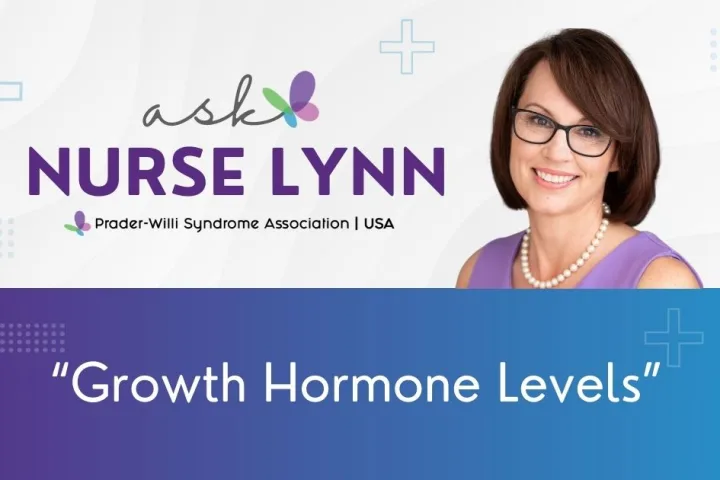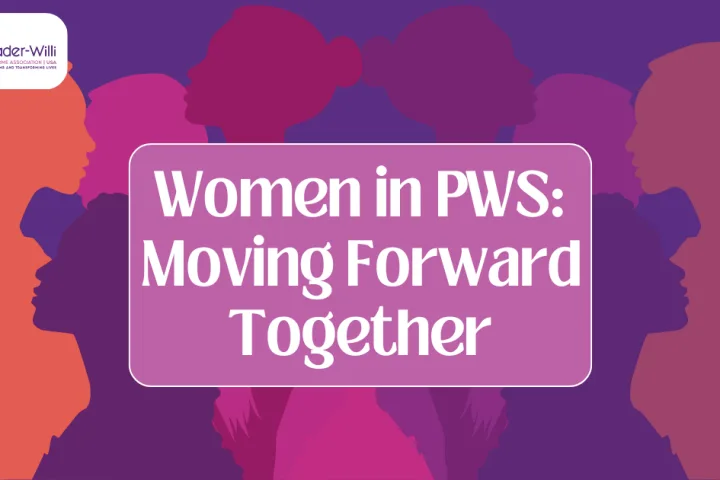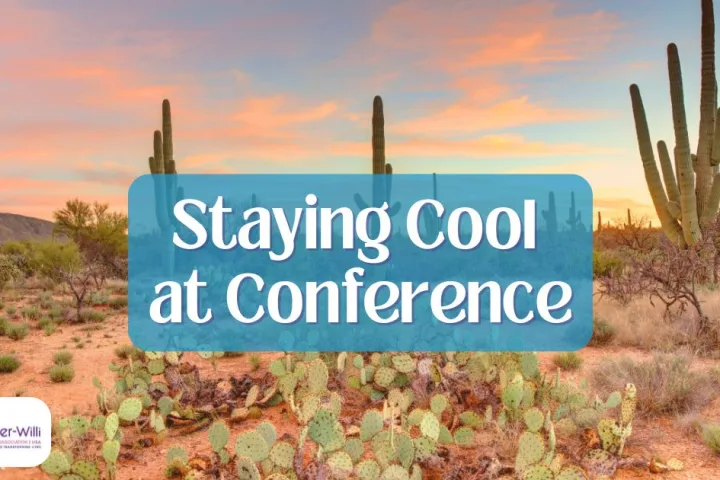contributed by Tammie Penta, mom to Victor, 30, living with PWS
Living with an adult with PWS is both gratifying and exhausting. When your child is young, it seems like 18 is a long time away. Although it is, there are so many things we as parents need to do or consider to prepare for that next stage of life.
Two of the most important things are obtaining guardianship and SSI. You can start the process right before their 18th birthday. Keep in mind that guardianship is through your county and is a state order; and SSI is a federal program. There are attorneys who can do this for you; some communities have free resources; and some, like us, used a legal clerk to do all the paperwork and we represented ourselves. However, be aware, it could cost thousands of dollars to get this done, depending on your state. My advice, start saving those pennies early for this.
Guardianship
Obtaining guardianship was a pretty painless process. They had a nurse come in and do an evaluation and the court appointed our son an attorney, who also came to the house for a visit and to speak to him. Finally, we had the court date which literally took less than five minutes, where all of us were present and the judge made the ruling. Once we got full guardianship and conservatorship (called different things in different states), we had to remember to fill out yearly paperwork and submit it to the court for the annual guardianship paperwork. It is pretty redundant, but necessary or you lose guardianship status over your adult child. The main reason I feel it is necessary to do this is If you don’t have guardianship, you as a parent have no voice in their decisions with medical or financial situations. You also could not dictate who they see or who they live with. Sadly, this could lead to victimization without oversight.
SSI
Filing for SSI is a different story, but equally important. At 18 years of age, SSI no longer takes the parents income into consideration, which is huge. We were initially denied when we applied for SSI, so we had to appeal. Apparently, this is the norm for our population. Sadly, this process took a year to resolve, and the frustration of red tape makes it easy to give up when this happens, but DON’T! Your adult deserves to have this income. If you are denied and need to appeal, there are lawyers that specialize in this work and their fee is tied to the funds your child is granted. The best advice I was given was to report that your child pays room and board. This will assure that they receive the full amount of SSI. Since our son lives at home, this allows him to have spending money with oversight and assists the family, who otherwise may be empty nesters.
Volunteering
Transition into adulthood is stressful for everyone. The daily rituals of school life may be over, which causes anxiety for everyone. Many of our kids had the same schedule for 12 plus years and now their day-to-day norm looks completely different, potentially without the same faces that they have come to know over the years. Their day may not automatically be filled with things to do and it now falls on us parents to make their day fulfilling and meaningful. There are some adults that work jobs, volunteer or attend day programs. For us, work never panned out. Due to the unique food issues with PWS, the work option in our community was for my son to shred papers, which was not going to cut it for Victor. Since he never cared about making money, we went the route of volunteering. Our son has volunteered at several places over the years. From being an aid in his special needs high school to being a barista with other adults with developmental disabilities at our church. We also made sure he was involved in clubs where he could attend or mentor other individuals, which is a highlight of his week. However, his favorite thing to do is be on the PWS Adult Advisory Board. His volunteer work makes him feel valued as an individual and it keeps his schedule busy.
Although our lives are not “normal” they are normal for us. Our son is happy, he stays busy, is an avid advocate for individuals living with PWS, and most importantly feels valued.
Share this!





 Jennifer Bolander has been serving as a Special Education Specialist for PWSA (USA) since October of 2015. She is a graduate of John Carroll University and lives in Ohio with her husband Brad and daughters Kate (17), and Sophia (13) who was born with PWS.
Jennifer Bolander has been serving as a Special Education Specialist for PWSA (USA) since October of 2015. She is a graduate of John Carroll University and lives in Ohio with her husband Brad and daughters Kate (17), and Sophia (13) who was born with PWS. Perry A. Zirkel has written more than 1,500 publications on various aspects of school law, with an emphasis on legal issues in special education. He writes a regular column for NAESP’s Principal magazine and NASP’s Communiqué newsletter, and he did so previously for Phi Delta Kappan and Teaching Exceptional Children.
Perry A. Zirkel has written more than 1,500 publications on various aspects of school law, with an emphasis on legal issues in special education. He writes a regular column for NAESP’s Principal magazine and NASP’s Communiqué newsletter, and he did so previously for Phi Delta Kappan and Teaching Exceptional Children. Evan has worked with the Prader-Willi Syndrome Association (USA) since 2007 primarily as a Crisis Intervention and Family Support Counselor. Evans works with parents and schools to foster strong collaborative relationships and appropriate educational environments for students with PWS.
Evan has worked with the Prader-Willi Syndrome Association (USA) since 2007 primarily as a Crisis Intervention and Family Support Counselor. Evans works with parents and schools to foster strong collaborative relationships and appropriate educational environments for students with PWS. Dr. Amy McTighe is the PWS Program Manager and Inpatient Teacher at the Center for Prader-Willi Syndrome at the Children’s Institute of Pittsburgh. She graduated from Duquesne University receiving her Bachelor’s and Master’s degree in Education with a focus on elementary education, special education, and language arts.
Dr. Amy McTighe is the PWS Program Manager and Inpatient Teacher at the Center for Prader-Willi Syndrome at the Children’s Institute of Pittsburgh. She graduated from Duquesne University receiving her Bachelor’s and Master’s degree in Education with a focus on elementary education, special education, and language arts. Staci Zimmerman works for Prader-Willi Syndrome Association of Colorado as an Individualized Education Program (IEP) consultant. Staci collaborates with the PWS multi-disciplinary clinic at the Children’s Hospital in Denver supporting families and school districts around the United States with their child’s Individual Educational Plan.
Staci Zimmerman works for Prader-Willi Syndrome Association of Colorado as an Individualized Education Program (IEP) consultant. Staci collaborates with the PWS multi-disciplinary clinic at the Children’s Hospital in Denver supporting families and school districts around the United States with their child’s Individual Educational Plan. Founded in 2001, SDLC is a non-profit legal services organization dedicated to protecting and advancing the legal rights of people with disabilities throughout the South. It partners with the Southern Poverty Law Center, Protection and Advocacy (P&A) programs, Legal Services Corporations (LSC) and disability organizations on major, systemic disability rights issues involving the Individuals with Disabilities Education Act (IDEA), Americans with Disabilities Act (ADA), and the federal Medicaid Act. Recently in November 2014, Jim retired.
Founded in 2001, SDLC is a non-profit legal services organization dedicated to protecting and advancing the legal rights of people with disabilities throughout the South. It partners with the Southern Poverty Law Center, Protection and Advocacy (P&A) programs, Legal Services Corporations (LSC) and disability organizations on major, systemic disability rights issues involving the Individuals with Disabilities Education Act (IDEA), Americans with Disabilities Act (ADA), and the federal Medicaid Act. Recently in November 2014, Jim retired.